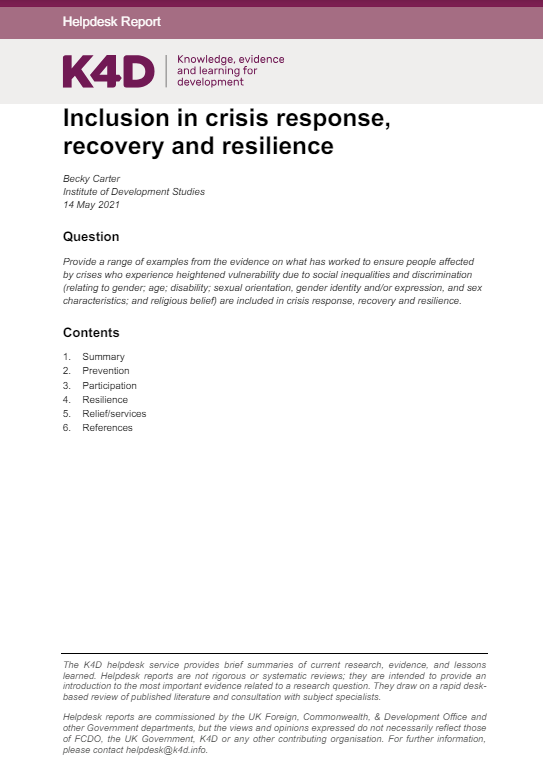This resource from the Knowledge, Evidence and Learning for Development (K4D) programme provides examples of what has worked to include people who experience discrimination and social inequalities based on gender, age, disability, religious beliefs, sexual orientation, gender identity and expression, and sex characteristics, in humanitarian assistance programmes.
The resource provides recommendations on:
- including marginalised and excluded people in planning and design of activities
- combining different types of programming (e.g. multi-component economic empowerment and social norms change)
- building relationships with and investing in capacity building of local organisations
- conducting intersectional analysis to determine people most in need of humanitarian assistance.
Date of publication
Theme
Population
Type of resource
Funding
Length
Geographical focus
Language

